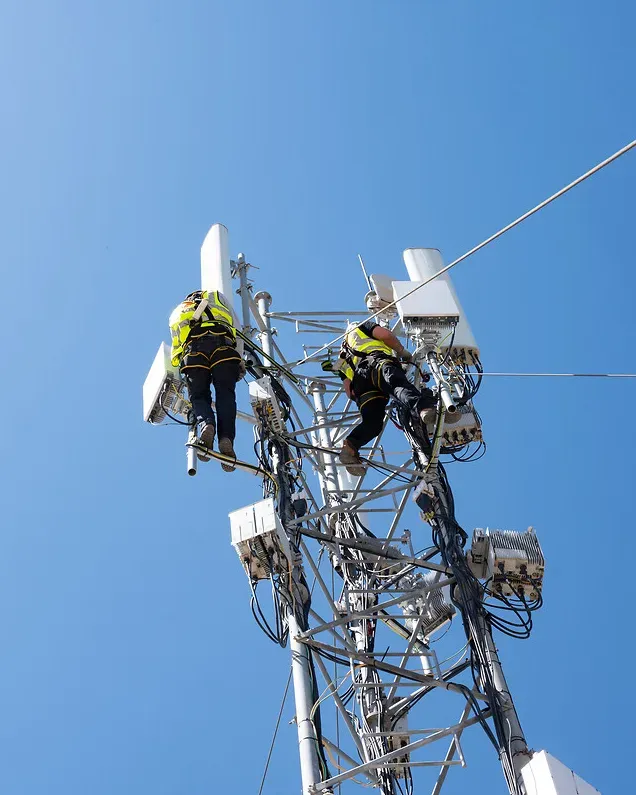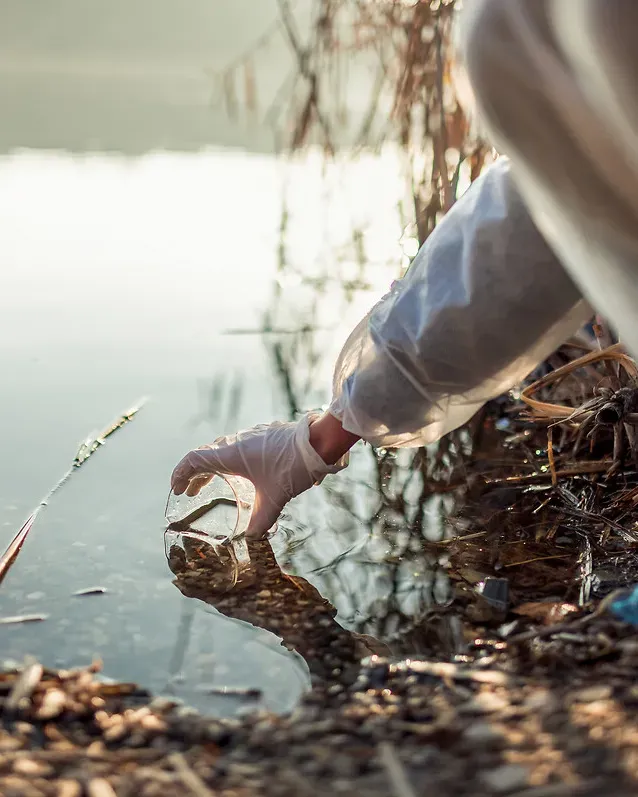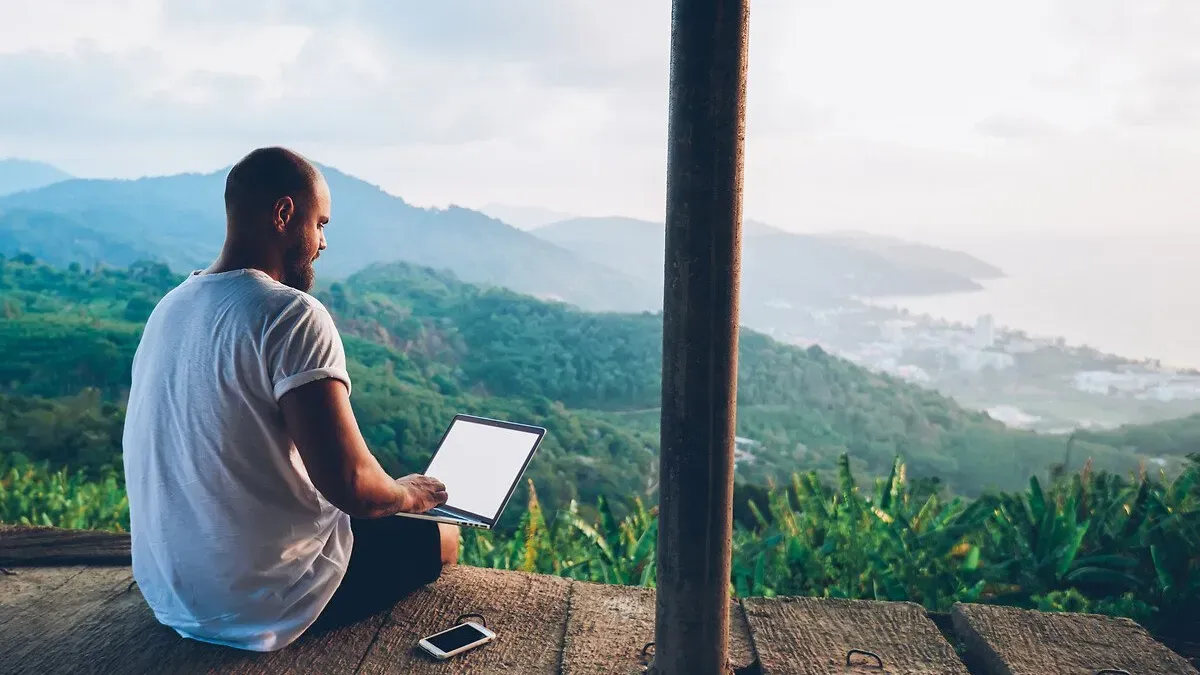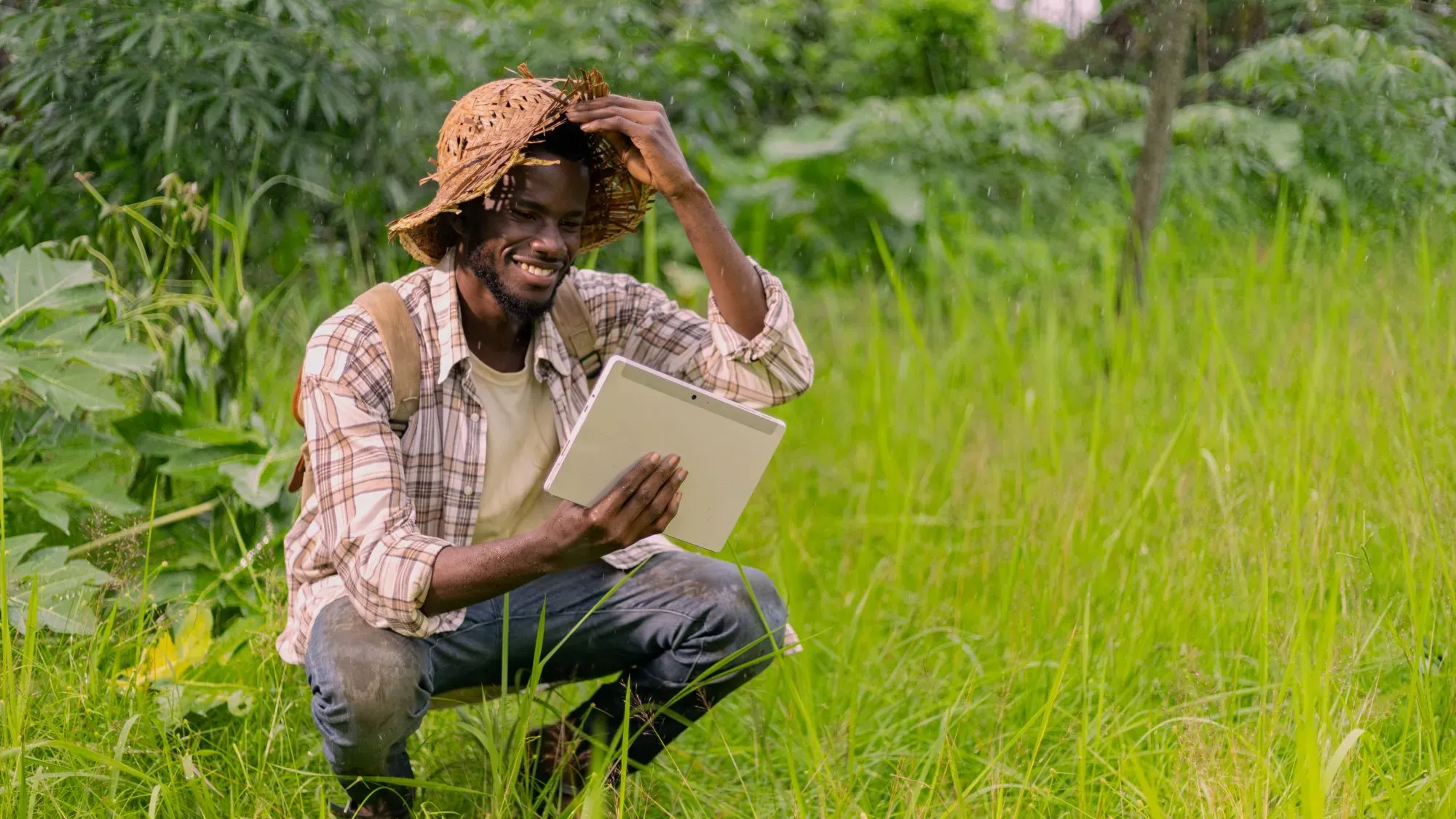Understanding
to better anticipate
To adapt our infrastructures, we must first understand the challenges ahead. Since autumn 2023, our climate risk-mapping project has helped us identify two major categories of risks: Physical risks: direct impacts on our infrastructures and processes Transition risks: regulatory changes, shifts in business models and impacts across the value chain
We assess our level of exposure and vulnerabilities in each country using the IPCC’s most critical scenarios for 2030, 2040 and 2050.
Our CSR strategy is built around three priorities: reducing our negative impacts on the environment and society, adapting to change and helping our customers and society do the same.
Understanding
to better anticipate
Our CSR strategy is built around three priorities: reducing our negative impacts on the environment and society, adapting to change and helping our customers and society do the same.
To adapt our infrastructures, we must first understand the challenges ahead. Since autumn 2023, our climate risk-mapping project has helped us identify two major categories of risks: Physical risks: direct impacts on our infrastructures and processes Transition risks: regulatory changes, shifts in business models and impacts across the value chain We assess our level of exposure and vulnerabilities in each country using the IPCC’s most critical scenarios for 2030, 2040 and 2050.
Strengthening
our infrastructures
Faced with physical risks that directly threaten our networks — heatwaves, floods, storms and landslides — we deploy measures tailored to each geographical context:
Undergrounding cables in exposed areas, Next-generation cooling systems in datacenters, Reinforced backup power systems, Elevating equipment in flood-prone areas, Upgrading redundancy systems.
Each Group entity builds its own adaptation plan to meet its local needs, taking into account its specific vulnerabilities.
Orange’s network resilience is built on looped and mesh architectures with diversified physical routes, to ensure a minimum level of service in the event of an outage.
Strengthening
our infrastructures
Orange’s network resilience is built on looped and mesh architectures with diversified physical routes, to ensure a minimum level of service in the event of an outage.
Faced with physical risks that directly threaten our networks — heatwaves, floods, storms and landslides — we deploy measures tailored to each geographical context: Undergrounding cables in exposed areas, Next-generation cooling systems in datacenters, Reinforced backup power systems, Elevating equipment in flood-prone areas, Upgrading redundancy systems. Each Group entity builds its own adaptation plan to meet its local needs, taking into account its specific vulnerabilities.
Anticipating
to keep people connected
Resilience also means having a plan B. We multiply connectivity routes so that traffic automatically switches when a route is disrupted. For emergency situations, Orange Business has developed solutions such as the SafetyCase, a compact and autonomous device that can reestablish a functional communication network within 30 minutes, even in disaster areas with no remaining network or power. We implement business continuity plans in line with the ISO/IEC 22301 standard. These plans support the restoration of fixed networks after severe weather, the recovery of mobile sites and the protection of critical infrastructures. Our equipment is monitored continuously and sensitive sites are equipped with autonomous power supplies to maintain service during outages.
We are also strengthening our network resilience by adding satellite coverage that can take over instantly if all other systems are compromised.
Anticipating
to keep people connected
We are also strengthening our network resilience by adding satellite coverage that can take over instantly if all other systems are compromised.
Resilience also means having a plan B. We multiply connectivity routes so that traffic automatically switches when a route is disrupted. For emergency situations, Orange Business has developed solutions such as the SafetyCase, a compact and autonomous device that can reestablish a functional communication network within 30 minutes, even in disaster areas with no remaining network or power. We implement business continuity plans in line with the ISO/IEC 22301 standard. These plans support the restoration of fixed networks after severe weather, the recovery of mobile sites and the protection of critical infrastructures. Our equipment is monitored continuously and sensitive sites are equipped with autonomous power supplies to maintain service during outages.

The safety of our employees and subcontractors is a top priority in our climate adaptation strategy.
This commitment takes the form of concrete actions:
- Training teams to operate in extreme climate conditions
- Setting up pre-crisis units in high-risk areas
- Defining specific protocols for outdoor work during heatwaves
- Deploying early-warning tools to protect teams on the ground.
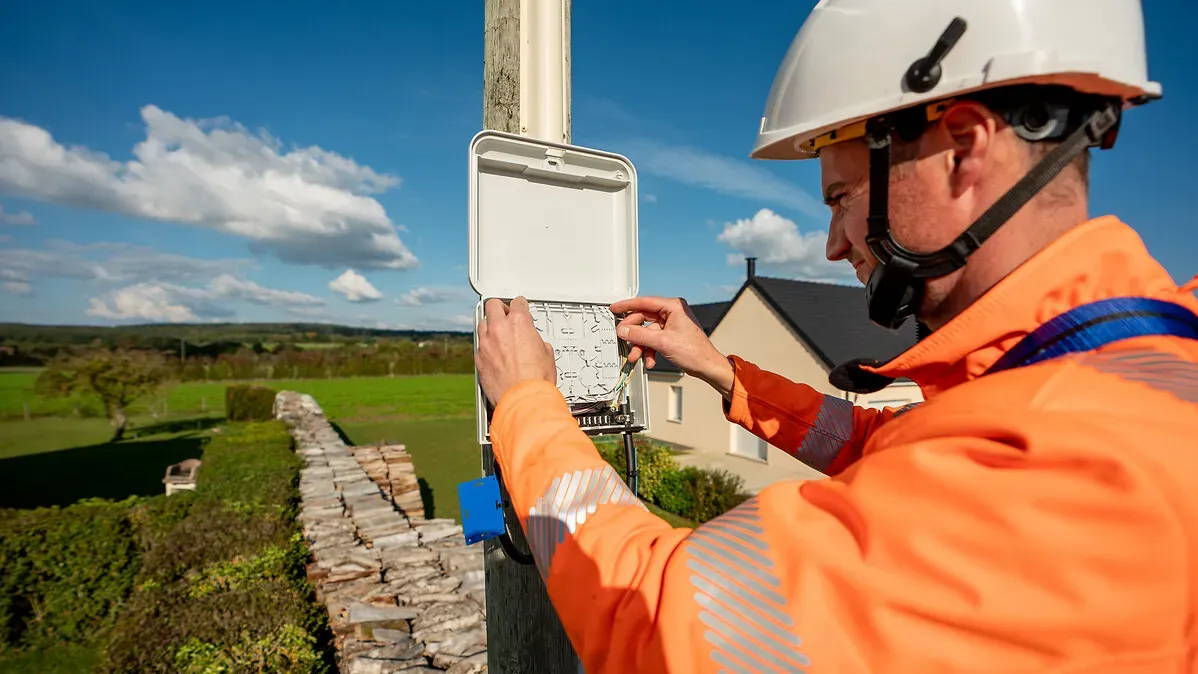
Aligning
with the highest standards
Climate adaptation is now part of European requirements, notably through the Corporate Sustainability Reporting Directive (CSRD). We rely in particular on the SSP5-8.5 climate scenario, which is the most pessimistic pathway. This structured approach, aligned with our Lead the Future strategic plan, reassures partners, investors and customers of the long-term resilience of our model. It is a significant investment, but essential to ensure that digital services adapt to climate risks and remain accessible to all.
We have mapped strategic sites in 11 Group countries and analyzed the evolution of climate hazards under IPCC scenarios for 2030, 2040, and 2050.
Aligning
with the highest standards
We have mapped strategic sites in 11 Group countries and analyzed the evolution of climate hazards under IPCC scenarios for 2030, 2040, and 2050.
Climate adaptation is now part of European requirements, notably through the Corporate Sustainability Reporting Directive (CSRD). We rely in particular on the SSP5-8.5 climate scenario, which is the most pessimistic pathway. This structured approach, aligned with our Lead the Future strategic plan, reassures partners, investors and customers of the long-term resilience of our model. It is a significant investment, but essential to ensure that digital services adapt to climate risks and remain accessible to all.
a strategic alliance that strengthens our resilience
As mutual customers in France, Orange and ENEDIS have built a key partnership to ensure service continuity in the face of climate challenges. Our telecommunications networks and the electricity networks operated by ENEDIS are tightly interconnected. Together, we have developed a strong collaboration framed by a crisis agreement that structures operational coordination. Our aim is to improve our shared ability to respond to risks that may affect our operations, whether from today’s weather events or tomorrow’s climate challenges.
A clear organizational framework for incident response
- Strengthened local cooperation in the field
- Close coordination for joint works
- A shared escalation process for efficient decision-making
- Shared tools to anticipate impacts
We have developed a strong collaboration framed by a crisis agreement that structures operational coordination
Past power-cut episodes were a real wake-up call! They highlighted the critical importance of this collaboration. Since then, we’ve intensified our joint efforts through simulation exercises where Orange and ENEDIS work hand in hand.
This strategic alliance goes beyond a simple partnership. It is essential to ensuring the continuity of vital services used every day by millions of people.
A collaborative, cross-functional
approach in motion
Orange, climate change adaptation is a shared responsibility. The CSR Division and the Audit, Internal Control and Risk Division work closely with key Group departments to integrate emerging climate risks. The Security Division identifies criteria for designating strategic priority sites. Orange Innovation develops vulnerability-assessment methods and designs technical solutions such as advanced cooling systems and innovative energy alternatives. Human Resources uses regional climate projections to define work arrangements suited to local conditions. On the ground, our Climate Officers act as a bridge between technical experts, security teams, risk managers and HR to strengthen overall resilience.
We have laid the foundation for a cross-disciplinary, cross-regional community. Climate adaptation is not just the responsibility of environmental experts. Everyone must be involved because everyone, at every level, has a role to play.
A collaborative, cross-functional
approach in motion
We have laid the foundation for a cross-disciplinary, cross-regional community. Climate adaptation is not just the responsibility of environmental experts. Everyone must be involved because everyone, at every level, has a role to play.
Orange, climate change adaptation is a shared responsibility. The CSR Division and the Audit, Internal Control and Risk Division work closely with key Group departments to integrate emerging climate risks. The Security Division identifies criteria for designating strategic priority sites. Orange Innovation develops vulnerability-assessment methods and designs technical solutions such as advanced cooling systems and innovative energy alternatives. Human Resources uses regional climate projections to define work arrangements suited to local conditions. On the ground, our Climate Officers act as a bridge between technical experts, security teams, risk managers and HR to strengthen overall resilience.
Mobilize and train
to take action on climate change
We have launched several dedicated initiatives to make these issues accessible to all. Online training courses help employees understand tomorrow’s climate challenges. Since 2023, more than 60,000 employees have completed the Orange CSR Visa, raising awareness of environmental issues and helping create company-wide momentum. Over 23,000 employees have taken part in the Climate Fresk workshop, using visuals to better understand the mechanisms of climate change and their impacts.
These training efforts are essential to ensure that everyone, at every level, can contribute to our collective resilience in the face of climate change.
Mobilize and train
to take action on climate change
These training efforts are essential to ensure that everyone, at every level, can contribute to our collective resilience in the face of climate change.
We have launched several dedicated initiatives to make these issues accessible to all. Online training courses help employees understand tomorrow’s climate challenges. Since 2023, more than 60,000 employees have completed the Orange CSR Visa, raising awareness of environmental issues and helping create company-wide momentum. Over 23,000 employees have taken part in the Climate Fresk workshop, using visuals to better understand the mechanisms of climate change and their impacts.


